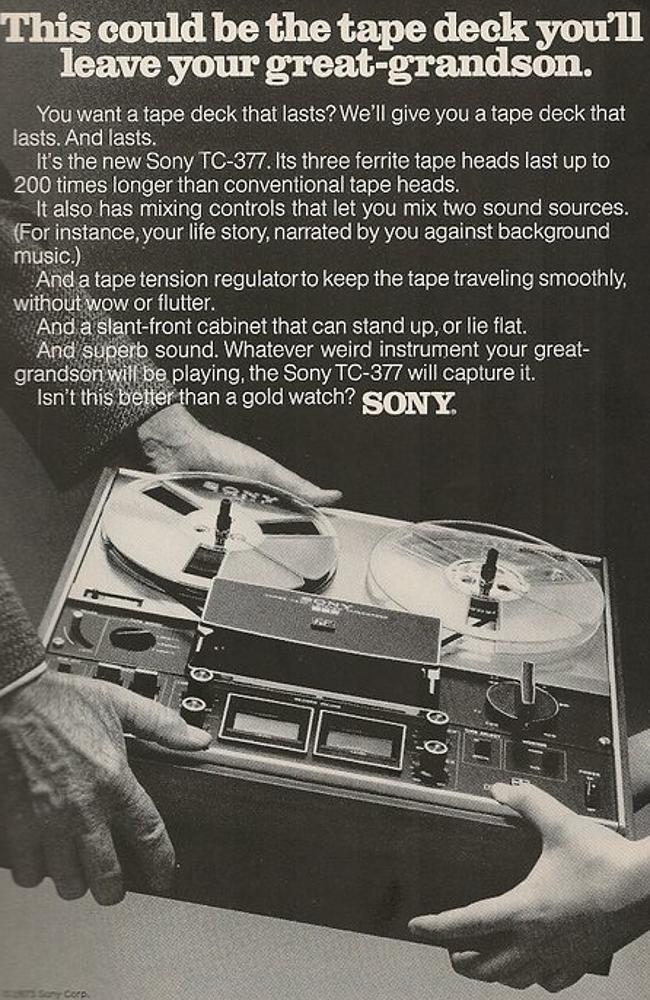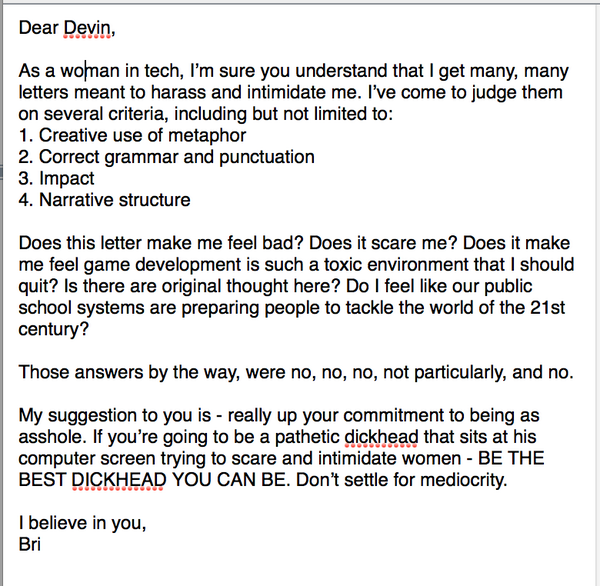Football plays in the background loud and raucous as a rodeo, the ball flying and falling into bodies, bodies falling into bodies, a hundred thousand beer-drunk bodies screaming at twenty-two adrenaline-drunk bodies behind me as I watch my grandfather’s limp-dicked body slowly destroy itself in a La-Z-Boy. Throat cancer. From too much, for too long, of everything.
“Get that fucker,” someone yells in the other room, watching the same game we are watching—Alabama against, who? Arkansas? Tennessee? Someone, in any case, I am told we hate. I have learned that we hate everyone. And then from the kitchen there is a shushing noise and everyone quiets down because there is a dying man amongst us. Though no one ever thinks to turn down the television. Or, for that matter, to stop using the word “hate.”
“The thing is,” one announcer says to the other, “this game is all about scoring points. You’ve really got to get points on the board.” And the other replies, “That’s right, Verne. Like they say: the best defense is a good offense,” though it’s not “they” but he who’s saying it this time. And we all nod in agreement—I almost said “agrievement”—even the soon-to-be-dead man. Though we could not know then, or now, or ever, what it was we wanted to defend against.
*
There is a one-lane wooden bridge you have to cross to get here, my grandfather’s triple-wide trailer on who-knows-how-many acres of forest on top of a mountain in Alabama where the trees grow up like children and die like them, too. It is rickety, of course, the bridge. Its thick slats lie further apart than perhaps you’d hope and just wide enough, my cousin would say, to squeeze your fat ass through. And then his wife would hit him on the shoulder for having said “ass” or maybe “fat” or maybe just anything, for having said anything. Everything here in the foothills of Appalachia holds the potential to be frowned upon.
And then there are the mountains of Alabama climbing up around me, blurred but somehow still sharp—looming, silhouetted and shining like impressionist paintings of, well, mountains. What is it about these mountains that arrests me? Surely not their size. I know bigger things exist. And it can’t, either, be their shape because I know the way the earth can launch itself up toward the sky like a football waiting to be caught. It must be then this sense I have of ownership. These mountains are mine, they are my mountains, they are the mountains of me. I’ve lived for so long so close to them that I couldn’t, like my own nose, begin to see them until I was almost gone. But, God, do I miss them now, my mountains, my mountains, this nose of me that is the earth, these rocky worlds through which I breathe. The mountains of Alabama are small mountains—foothills, really—but they are mine like a sports team is mine—like a football game (which I have for so long been near but have not really, really seen) is mine—as in the phrase “We scored! We scored!” How fine and good it is to have a thing before we die.
*
A few weeks before he died, my grandfather was alive. He was frail and fading but he could move and speak and we took pictures—all of us, the whole family—at the botanical gardens. He was in a wheelchair because he was weak. He hated the wheelchair. Let me get up, he’d say, and we’d say, see that big flower over there? You can get up when we make it there. But we never let him up. In the pictures he is sitting on a stone step that has been carved between two sets of bushes. Who can ever know what type of bushes bushes are? The wheelchair sits just out of frame, waiting like a coffin.
After the pictures we went back to his house, the lot of us, and made ham sandwiches and coleslaw, potato salad and deviled eggs. We ate off of paper plates against the protestations of my new grandmother, the woman my grandfather married just a few years ago after two decades of a solitude spent drinking heavily and smoking even more. These are the things that would kill him, of course, biologically. But it was the years of silence, I think, that really did him in. The years of watching war documentaries in a drunken haze and not having to close the door to piss and calling his sons at two a.m. to say, “Fuck you where are you why did you abandon me.” Though of course it was the other way around. He had two dogs but one of them drank antifreeze, keeled over like a log. Maybe that had something to do with it.
 With our paper plates we gather in as few rooms as can hold us, about twenty-two or so people, mostly fat and lumpen, proletariat but maybe climbing out of it. In each room a television plays a football game, though who can know which team’s which and how many points are on the board and, anyway, who the hell do we even root for? We all know why we took the pictures, why the wheelchair’s there, why we’re there. We do not know why football is the thing we have chosen to watch, except that it is there in the air like pollen in an Alabama spring, dusting everything, even—especially—our aching American lungs.
With our paper plates we gather in as few rooms as can hold us, about twenty-two or so people, mostly fat and lumpen, proletariat but maybe climbing out of it. In each room a television plays a football game, though who can know which team’s which and how many points are on the board and, anyway, who the hell do we even root for? We all know why we took the pictures, why the wheelchair’s there, why we’re there. We do not know why football is the thing we have chosen to watch, except that it is there in the air like pollen in an Alabama spring, dusting everything, even—especially—our aching American lungs.
The Alabama quarterback, AJ McCarron, is hurt that day. They put it a lower-string player whom they’re grooming to take over. He is a young African-American man, like so many of them are young African-American men. It is a gruesome scene—an older white man, Nick Saban, in a suit, clapping and yelling at young, lean black men to work harder, to sweat more. The older men in the room—all of them, all of them white—seem to think nothing of it. The new quarterback takes the field and my cousin says, “You know, I hate it when they put in those ni—” and I punch him across the jaw, dislodging blood from his mouth into his coleslaw.
Or, no. The better version of me does this. The worse version of me, the me-I-am, says nothing. The me-I-am sits silently on the couch, lets him finish the word, looks away, ashamed because he failed—because I failed—as I always, always do. The peaks of Alabama’s mountains are evergreen and verdant but underneath, the coal—my broken family, me—is ugly as the mud.
*
Years before he died, my grandfather was dying. I took a trip with him to a big cabin in the Smokey Mountains of Tennessee. You can rent cabins up there that hang out over the mountains like diving boards and look down onto Gatlinburg, a tourist trap full of knife shops and fudge shops and candy shops and kitsch. They’re big affairs, these cabins—sometimes eight- or nine-bedrooms-big and full of pool tables and dishwashers and everything is fake of course but, all in all, it’s a cheap vacation if several families pitch in and share the space.
I sat swaying with him in rocking chairs on the deck that wrapped around the place. Around us up that high there were no birds that I remember. But the thing about memory is it’s almost all a fiction. Maybe, after all, the birds were there. I cannot if I try begin to see them hovering near the burnished wood, its faux-age rubbed into it with skill and muscle and more than a little spit. But this is proof of nothing. Even now I can just barely see my grandfather’s body, its many cased-in bags, lumped in the chair, rocking pensively, looking out over the mountains below us, their titular smoke coagulating and clotting as if the earth needed to heal its broken body.
He asked me then, as he would never ask again, an earnest, quiet question. “Do you meditate?” he said, his eyes out away from me, toward where the sun would be later, as it fell slowly down to a sleep that my grandfather could not obtain, even then, without a CPAP machine to regulate his breathing. “I meditate a lot,” he said. And just to humor him I said, “Yeah, I do. I do. Sometimes.” But that was a lie. I never meditate. I can’t stand to be in myself enough to try. But he seemed satisfied by the answer, lifted himself, patted me on the shoulder, said “Good,” and nothing else. Went back inside an old, old man.
*
There wasn’t exactly a funeral because there was no body to entomb. We gathered instead around his ashes one last time, the dozens and dozens of us, too many of us for me to even know. My grandmother had laid out onto tables the objects of his life—report cards saved, miraculously, from the fourth and fifth grades; pictures of his mother and his farmer-father; his Green Beret beret; the photos we had taken in the garden just weeks before he passed; a letter of thanks from Richard Nixon—who knows, now, for what?
 A man I did not know explained that as a child they called him, with a smile, “the Goot,” a word for “penis” they’d, as far as I can tell, invented. He was prodigious I suppose. The man began to cry and my uncle began to cry and softly all of us, all God-knows-how-many of us in a circle around these report cards and pictures, letters and forgotten pins, began to softly cry though really, why? Why are we always marking death with our bodies? Why does it fall out of us—the quick, the quick—like a sickness to be shed?
A man I did not know explained that as a child they called him, with a smile, “the Goot,” a word for “penis” they’d, as far as I can tell, invented. He was prodigious I suppose. The man began to cry and my uncle began to cry and softly all of us, all God-knows-how-many of us in a circle around these report cards and pictures, letters and forgotten pins, began to softly cry though really, why? Why are we always marking death with our bodies? Why does it fall out of us—the quick, the quick—like a sickness to be shed?
And in the other room my grandmother sat in the chair in which he spent so many of his days, a smoke-infused red leather contraption that barely held him until sickness took him. And then it swallowed him whole. On the television, football played—the end of the season, one of the last games of the year—though now we’d had the good sense, at least, to mute it. We walked back through the woods, a few of us, took a box in which his ashes lay, spread them out among the leaves and clay under an overhang, the beginnings of a mountain, at the last line of the land he owned. In football there is a certain pass thrown only at the ends of the rope, thrown only in the hopes of one last sporting redemption, called a “Hail Mary.” This is because, though an action—a jerk back of the hand and a launching, an utter launching, like a missile, across the field—this pass is really, in the end, like all the things we ever do at the ends of our possible being, just a prayer. Not the sound of passes but the sound of passing filled that trailer like a choir.
*
There is no time in sport for tears. In football there are men, real mean—whatever that means—and they can’t cry unless maybe they’re the coach, in which case, okay, we’ll accept it as a possibility—after winning a big game, perhaps. Or the same thing, only losing. But not the players. The players, there are twenty-two of them on the field and they wear pads, I think, and I’m pretty sure, some helmets. It is maybe against the rules if you don’t have a helmet. Like riding a bike, only different. Sometimes they say “hike” and sometimes they say “hut” and sometimes they say “Blue! 42! Blue! 42!” though that may be a myth and anyways I’m pretty sure they all mean the same thing, or close to it, like love and cherish and miss. But there is—I’m quite sure of this—a ball involved. It is brown and swollen with stitches like the busted lips of a child, which, all in all, I imagine was the intended effect. Like life, there are rules about what you can and cannot do with the ball, what you can and cannot do with your body—though, unlike life, the penalties seem to be not so severe. It should be clear by now I know nothing about football. In this way it is very much like everything else—like croquet, say, or dying.
What I do know: in football when a player is injured the stands go quiet until he rises again and everyone claps for him—partly because they are glad he is all right, partly because it is something like a brave thing to take bodily injury on behalf of those of us who can’t, and partly because they are excited that the game, now, will continue. Partly because he wasn’t all right, partly because dying isn’t brave—partly because the game was just over, over—at my grandfather’s funeral not a single person clapped.
*
In the house before he died the hospice nurse would ask us to help her move him from his deathchair to his deathbed—a cot they’d brought in from the hospital, electric and adjustable, fancy, large, one we’d disassemble and reassemble every time we’d move it from one room to another, trying to answer “Is this a better room in which to die? Is this?”—which would, the cot, be after all, she’d say, more amenable to washing him—a sudden, sudden necessity for a dying body, a diapered body that, though cathetered, had soiled itself because there are in a body too many entrances for deadly air, too many exits for the soul.  She would position under him a sheet (any sheet, for this, would do, miraculously, though just a minute before it had been, what? an unthought-of piece of warmth? a balm?) and we would gather around him in his chair, the six of us—me, the nurse, my father, and my three uncles—and we would lift him up like one might, in a game, a small child, only heavier (how often in the course of everything have we noted, humanity, the likenesses of the small ones and the dying?), and his diaper would fall away from him and down below me would be my grandfather, my dying grandfather’s wet, stinking lump of a body, and his pubic hair would rise up, crinkled but still, against all odds, attached—his pubic hair would rise up like mountains, of course like mountains, and my uncle (who is not my uncle but my uncle only through a complicated series of marriages—so why, after all, would we let him carry—sheeting, the nurse would call it sheeting—my father’s father’s flaccid penis, the Goot—attached of course, of course, to his body—the now-tiny dickhead, as he would say, out of which he shot my father who, I presume, also shot me out like a completed pass, the first down of birth!), my uncle would drop his fucking e-cigarette between my grandfather and the sheet, straight down into the last pile of shit he’d ever emit, my grandfather, the shit the very reason we would be sheeting him over to this bed in which he would end and my-uncle-who-is-not-my-uncle would apologize, would grab it back, but my grandfather would somehow still be so heavy and we would falter but we would snatch him back again from falling, falling—and it would be over and I would leave for Tuscaloosa and I would never see him again, my grandfather, and how could that sonofabitch, my uncle-who-is-not, ever think an apology’d be enough? How could anything, anything, especially a sentence, ever be enough?
She would position under him a sheet (any sheet, for this, would do, miraculously, though just a minute before it had been, what? an unthought-of piece of warmth? a balm?) and we would gather around him in his chair, the six of us—me, the nurse, my father, and my three uncles—and we would lift him up like one might, in a game, a small child, only heavier (how often in the course of everything have we noted, humanity, the likenesses of the small ones and the dying?), and his diaper would fall away from him and down below me would be my grandfather, my dying grandfather’s wet, stinking lump of a body, and his pubic hair would rise up, crinkled but still, against all odds, attached—his pubic hair would rise up like mountains, of course like mountains, and my uncle (who is not my uncle but my uncle only through a complicated series of marriages—so why, after all, would we let him carry—sheeting, the nurse would call it sheeting—my father’s father’s flaccid penis, the Goot—attached of course, of course, to his body—the now-tiny dickhead, as he would say, out of which he shot my father who, I presume, also shot me out like a completed pass, the first down of birth!), my uncle would drop his fucking e-cigarette between my grandfather and the sheet, straight down into the last pile of shit he’d ever emit, my grandfather, the shit the very reason we would be sheeting him over to this bed in which he would end and my-uncle-who-is-not-my-uncle would apologize, would grab it back, but my grandfather would somehow still be so heavy and we would falter but we would snatch him back again from falling, falling—and it would be over and I would leave for Tuscaloosa and I would never see him again, my grandfather, and how could that sonofabitch, my uncle-who-is-not, ever think an apology’d be enough? How could anything, anything, especially a sentence, ever be enough?
*
For four years I lived less than a mile away from Bryant-Denny Stadium, which is currently the fifth-largest stadium in the United States and the eighth-largest “non-racing” stadium in the world by seating, according to the Internet. Another way to put this is “too fucking big.” Bryant-Denny is the stadium of the University of Alabama, an SEC powerhouse, a force of football with an academic institution attached. On game days in Tuscaloosa I could hear the roar of a score, the sunken silence of a fumbled ball, an incomplete pass. The sound of the game gets into you there, into your body like a tick or a tapeworm, burrows down in your belly and starts eating from the same pile of sustenance you do. In the South you can hear people say, “We don’t play football. We live it.” Or, well, no. You don’t hear people say that. But you see it: on t-shirts, on billboards, on television. You don’t hear it out of a mouth so much as you hear it out of every possible mouth—it’s an overtone the country has, like a tuning-fork-the-earth-is.
After four years in Tuscaloosa, I am moving now to Ann Arbor. I am leaving the South and its vicissitudes for the cold winters of the Midwest and the long winds of the Great Lakes. I will live this time even closer to the city’s heart, less than half a mile away from “The Big House,” the stadium of the University of Michigan—the biggest stadium in the country and the third-largest stadium in the world. I do not play football, nor do I, outside of family functions, regularly watch it. But I imagine I will never escape it.
And I think now, perhaps, I do not even want to. I want now to embrace it like the end of a romantic comedy when the girl sees her best friend has been, all along, the one she should end up with. And I imagine someone watching saying: yes, yes, embrace it. This is your one and only chance at love. I will hop from one college town to the next, facing up against anyone and everyone, against everything they bring to bear—listening to the calls of first-downs and field goals, shaking a roar up from my feet through my chest to my open mouth, hoping to—my God, I don’t even know anymore—distract the other team? Cheer us on to victory? Wake suddenly, with force, the dead I’ve left behind beneath mountains I may never see again, sleeping, vibrating to the pitch of the earth?
***
Rumpus original art by Erech Overaker.






























 Public Citizen is helping Cindy Fox sue Accessory Outlet for charging her $250 when she complained that an Iphone case hadn't shipped when promised; the company's rep told her that he'd fine her even more for emailing him to protest, adding an ominous "You are playing games with the wrong people and have made a very bad mistake."
Public Citizen is helping Cindy Fox sue Accessory Outlet for charging her $250 when she complained that an Iphone case hadn't shipped when promised; the company's rep told her that he'd fine her even more for emailing him to protest, adding an ominous "You are playing games with the wrong people and have made a very bad mistake."





